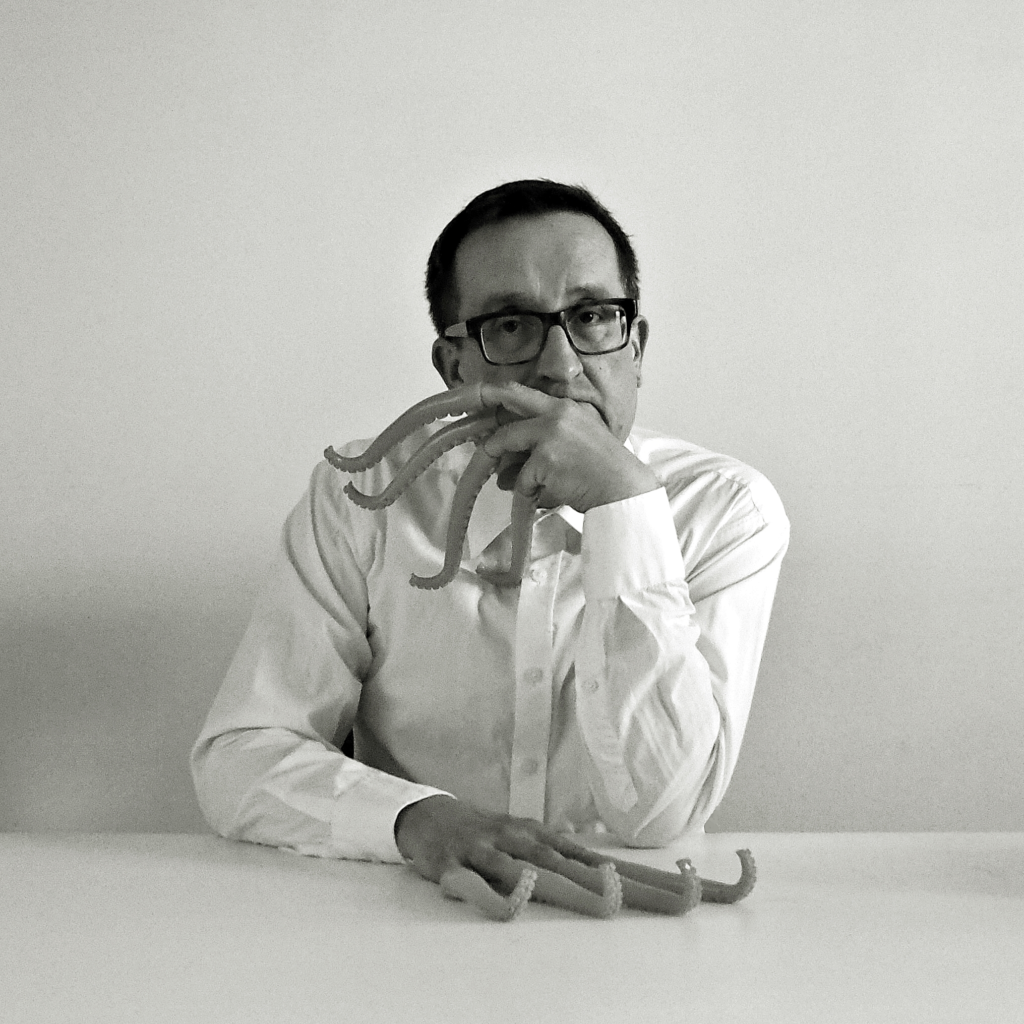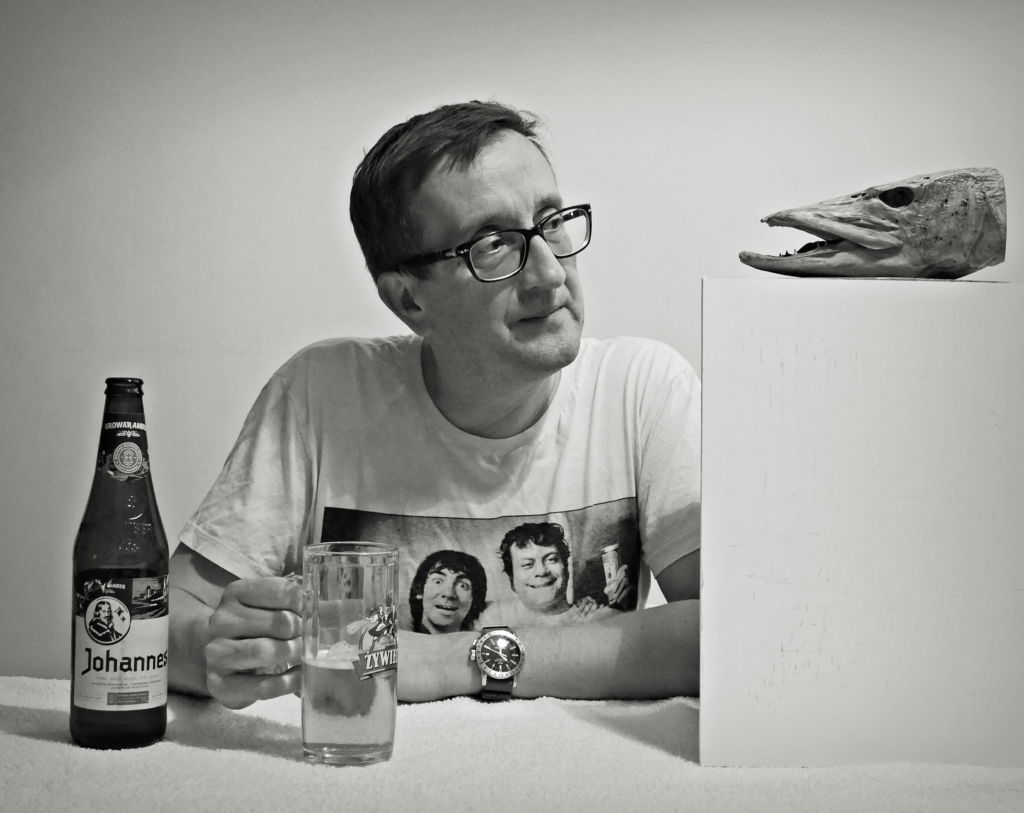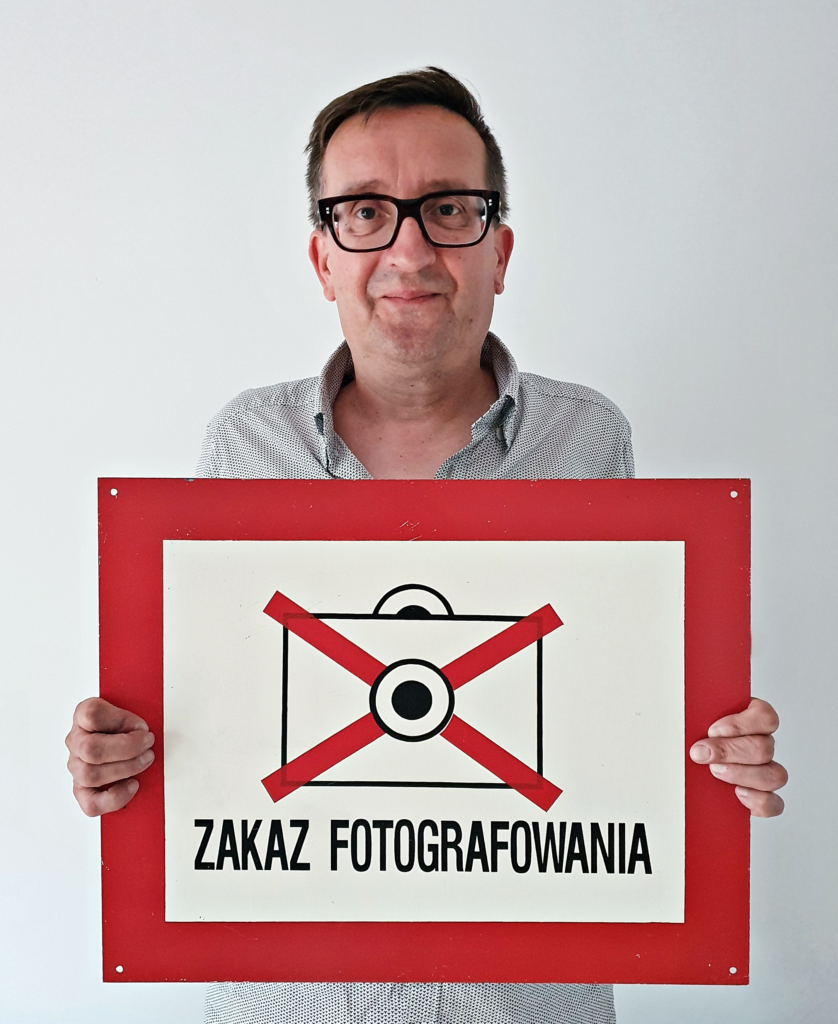Research Assistant Dr Martyna Majewska recently interviewed artist Mateusz (Mat) Fahrenholz, who shared his memories growing up in the Polish exile community in St Andrews, Fife, as the son of Polish war-time refugees. You can listen to their conversation here.
Mat’s parents were both displaced from eastern Poland (now Ukraine) as a result of World War II. As he explains in the podcast, his father was taken prisoner by German forces and (together with a group of other Poles) staged a daring escape from their labour camp to cross Europe and seek asylum in the UK. Mat’s mother’s journey was less dramatic (she migrated after the war), but she – like so many other Poles – also found herself making a new home in an unknown country far from where she had been born and raised.
Mat shares his memories of the vibrant Polish exile community that thrived in post-war Fife. He discusses the various kinds of work that his father took on in St Andrews, eventually becoming a cobbler and running a leather shop in the heart of the town. As he explains, that shop, the nearby Polish barber shop, and Mat’s family home became important community hubs, where Poles gathered to talk, share their common experiences, support each other, and enjoy each other’s company.
Mat’s testimony helps us understand how Polish refugees dealt with their war-time trauma – in a huge variety of ways, both individually and collectively. He also reflects on his parents’ determination not to pass that trauma on to their children. He talks about family visits back to Poland (but never to Ukraine, to the places his parents came from), and why he and his brothers have all ended up living in Warsaw, after being raised in Scotland. He also discusses some of the photography and art that he created in response to his parents’ story, and the ethical questions it raised for him around how to visualise such historical experiences for others.
Mat and Martyna’s conversation gives us fascinating insights into the many ripple effects of forced migrations on individuals, families and whole communities, across multiple generations. It adds to the picture painted by Diana Forster and Josef Butler in their podcast interview, where they too reflect on the different journeys that Polish refugees took, on the long legacy of their displacement, and on being ‘Pinglish’ themselves.


